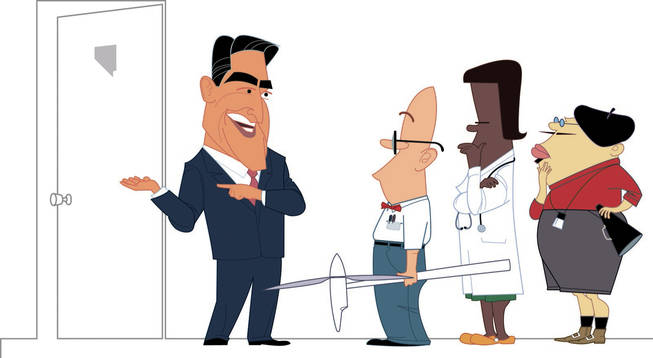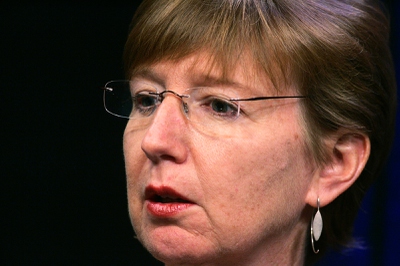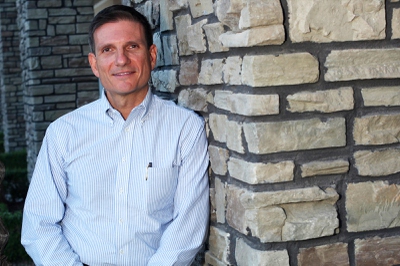Monday, Jan. 24, 2011 | 2 a.m.
Sun Archives
- Is Brian Sandoval’s ‘shared-sacrifice’ budget the solution to state’s economic woes? (1-23-11)
- Most vulnerable await budget cuts with trepidation (1-23-11)
- Increasingly worried liberals seek pushback on Sandoval budget (1-21-11)
- Construction industry: Raise taxes for job growth (1-20-11)
- Groups seek higher taxes on tobacco and gasoline (1-20-11)
- Sandoval warns of consolidation, job losses in state government (1-19-11)
Sun Coverage
In his State of the State address today, Gov. Brian Sandoval will reveal how he plans to balance the state budget, which is billions of dollars short of the funding needed to maintain current services. Those with interests at stake are bracing for cuts, the fifth such round and likely the deepest since Nevada’s economy flat-lined.
Sandoval is expected to give his vision for the future, and explain how Nevada can avoid similar straits in the future. The governor has signaled his plan involves creating an environment to attract new businesses and industry.
Indeed, elected officials, economists, business and education leaders have long known the state needs to diversify. But the state’s dire economic situation seems to have pushed decision makers to act on their decades-old mantra.
Nevada has taken a scattershot approach to economic development, which has resulted in numerous incentives that critics say dilute the state’s success. To point: More than a dozen studies have been commissioned in recent years to study how Nevada can diversify, with little coordination or overlap.
“A lot of people are working independently from each other, and I think it needs to be brought together under one vision,” former Assembly Speaker Barbara Buckley said. “People need to not get distracted by ‘Oh! Let’s give the film industry an incentive. Let’s try this, let’s try that.’ We end up trying to cater to everybody and end up not accomplishing anything.”
Buckley suggested state officials, under the governor’s leadership, reach consensus on the top two or three priorities and then direct all resources to those goals — a recommendation that diversification gurus support.
But which ideas should get the green light? Here are several proposals being discussed:
• Renewable energy: Nevada’s natural environment positions the state to be a leader in green energy production. But to truly diversify experts stress the state must focus more on energy technology manufacturing than energy production.
Wind and solar farms typically create only a handful of jobs — mostly construction, often given to out-of-state workers. Experts suggest the state focus instead on manufacturing. Although the United States invented solar photovoltaic cells, about 90 percent of the solar panels used in this country are imported from China. Half of the nation’s windmills are imported, too, from China and Europe.
• National defense: Leaders envision leveraging the state’s many defense sites — the Nevada National Security Site (formerly the Nevada Test Site); Yucca Mountain; Nellis and Creech Air Force Bases; and the Hawthorne and Fallon facilities — to win more government contracts with the Defense, Homeland Security and Energy departments. Yucca Mountain, for example, could be used for energy development, data security, data processing or a national laboratory. Staff at UNLV and the Security Site are working hard on technology to scan items as disparate as cargo vessels and human bodies.
The technology is promising, but its development and implementation depend heavily on federal funding — both to advance the technology and install it at transportation hubs. And huge pots of government money are hard to come by as Congress struggles with the federal deficit.
Yucca Mountain is a touchy subject and redefining it as something other than a nuclear dump could be a difficult task. Still, Rep. Joe Heck, R-Nev., has spoken of re-envisioning it as a place for scientific research and development on nuclear reprocessing.
The debate will likely rage on for years to come.
• Health care and bioscience: Proponents cite Nevada’s hospitals and research centers as a boon for medical tourism, an industry based on people from around the world coming to Nevada for treatment. The state boasts a premier international airport to make travel easy.
But demand for health care in Nevada already exceeds supply, and the concept of medical tourism has been batted around for years with few tangible results.
More promising is bioscience manufacturing, particularly the production of pharmaceuticals. The state is home to several drug and food supplement manufacturers providing a base for development, and Nevada’s dry climate is ideal for the industry.
• Movie making: Nevada is one of six states that offers no financial incentives to filmmakers. Leaders have kicked around the idea of creating a program to lure productions here, especially from states such as New Mexico, but economic development experts see a greater potential in digital media. Film incentive programs have been widely panned as ineffectual, prompting several states to abandon them.
Las Vegas in particular is perfectly situated to develop a digital media industry. The city is home to the world’s premier gaming talent, who use digital techniques to develop slot machines and whose knowledge easily could apply to film. Switch Communications, the valley’s supersized data center, could provide the massive servers a digital sector needs.
“It’s a less expensive way to produce a movie,” Nevada Economic Development Executive Director Michael Skaggs said. “The real step now is marketing.”
• Gay marriage: Las Vegas is the wedding capital of the world, with a couple getting married here every three minutes. That’s more than 100,000 weddings a year. Each pair ponies up $60 for a marriage license and likely spends much more at local restaurants, florists, hotels and retailers. The average American couple spends $28,000 on a wedding.
Extending marriage to gay couples could boost tourism given the scarcity of wedding locales for same-sex couples and pad state coffers with licensing and sales tax revenue. When California legalized same-sex unions in 2008, economists predicted the decision would generate $700 million in new spending, $50 million in state revenue and 2,000 jobs over a three-year period.
And if it doesn’t work out between the betrothed — another $500 or so per couple pumped into the economy for a divorce.
But gay marriage is not a likely prospect in Nevada. Residents voted in 2000 and 2002 to change the state constitution to define marriage as between a man and a woman.
• Imitate the models: Experts say Nevada doesn’t necessarily have to come up with unique ways to diversify its economy. There are plenty of working models on which the state can replicate. But the common theme in all economic development success stories is investment, something Nevadans seem loath to make.
Denver, for example, was once derided as among the worst places to live but is now hailed as one of the best. It counteracted a narrow economy based on oil, gas, defense, agriculture and beer by building a new convention center and international airport, improving its transportation infrastructure and creating a downtown “scientific and cultural facilities district.”
City officials didn’t cold call CEOs. Instead, they hosted site-selection conferences to show investors in person what the new city offered.
Las Vegas could easily do the same as hundreds of thousands of visitors, many industry mavens, flow through here on the convention circuit.
“Once they got in and saw what we were doing, perceptions changed,” said Tom Clark, executive vice president of the Metro Denver Economic Development Corp. and Denver Metro Chamber of Commerce. “They became interested and started telling other people.”
Utah created the Utah Science Technology and Research Initiative, a state-funded, university-based research investment, to jump-start its stagnant economy. The state put down $160 million for university infrastructure and committed $15 million a year for researchers. That leveraged $40 million in industry investment and to date has resulted in 242 startups or company relocations, 73,000 jobs and $166 million a year in state revenue. Despite the recession, Utah has one of the strongest economies in the nation.
Even as Nevada grapples with budget deficits, funding streams can be found. Economic development experts recommend industry collaboration, public-private partnerships and angel capital to complement state funding. They point out that investments in education typically pay for themselves, as strong schools attract leading researchers who easily secure grants.
Utah used USTAR to entice residents to invest in new industries. Program officials recognized an untapped market of recent retirees who moved to Park City and had key business ties but few local connections. They brought them together and every month present them with six investments to choose from. Three years later, 55 high net-worth “angels” have pumped hundreds of thousands of dollars into dozens of deals.
Nevada has a similar pool to draw from — rich, interested retirees who have settled around Lake Tahoe for its beauty or Las Vegas for its weather.
But the success of such efforts and economic development as a whole depends on the basic premise that Nevada is an attractive place to live, work and innovate. It hinges on people’s hope that Nevada can once again be a thriving economy.
“We need vision in this state,” said Steve Hill, chairman of the Las Vegas Chamber of Commerce’s State Policy Task Force. “We know where we want to go but we need to know how to get there.”




Join the Discussion:
Check this out for a full explanation of our conversion to the LiveFyre commenting system and instructions on how to sign up for an account.
Full comments policy